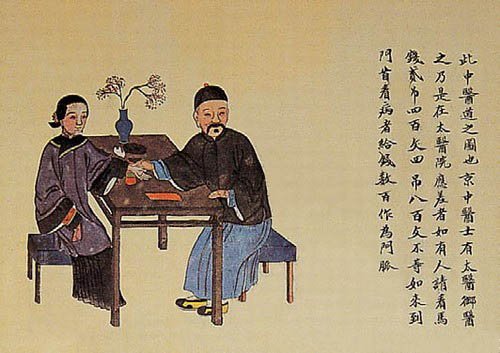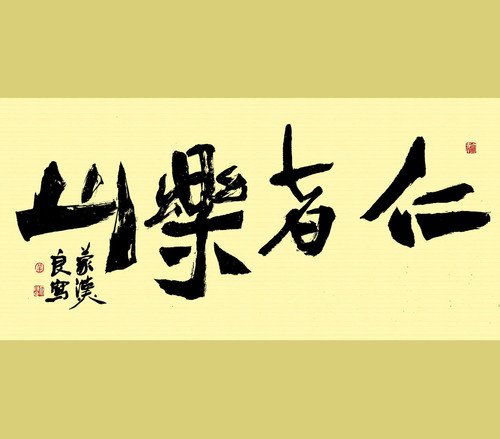All we need is love… love… love…
Originally published Jan 1, 2016
Warning: what follows is a bit personal and may strike you as strange, but life is short and precious and we are here to do our work with honesty and an open heart. So here it goes...
I woke up on this first morning of the New Year a bit later than usual with John Lennon's song in my head, and it's been with me every since:
Love, love, love! Love, love, love! Love, love, love!
All you need is love! All you need is love!
All you need is love, love! Love is all you need!
Then I had this insight as I was walking with the dogs into the rising sun on a glorious freezing morning with 70 mph winds in my face (I live by the Columbia River Gorge, so we get pretty intense winter storms):
WHAT IS NEEDED IN THIS COMING YEAR IS LOVE.
I cannot speak for you but this is what came to me as my truth as I was waking up with two dogs curled up on my bed and one too big to fit by the side. I have been exposed to quite a bit of trauma and violence in the past few years, directly and indirectly, and I have been around more wounded traumatized people than I would have liked, some more obviously so than others. So I have given some thought to this question of how to heal and make sense of trauma. Or rather, I would like to ask, how do we transform it into the powerful combination of irresistible compassion, wisdom, joy, strength, and beauty that I have seen in some of the people I respect most in my life. And the answer may just be simple, or at least no worse than the gruesome alternatives promoted by scheming politicians or profit-driven pharmaceutical companies and the research they fund: Love is what we need, unconditional, unapologetical, whole-hearted and full-souled love, every year, every month, every day, every hour, every morning when we wake up and every night when we go to bed, every waking moment that we are present!
I spend a lot of time with Chinese medicine practitioners so I have witnessed many times how such love is transmitted through a needle or tuning fork, through pulse-taking, through a simple question or a package of herbs. What comes to mind as well is this picture to the side here, from a fundraising project to help urban refugees in Jordan, including this training in acupressure and cranial-sacral healing to allow the refugees to heal each other's trauma (http://www.collateralrepairproject.org/?page_id=10). Or the grouchy grocery store bagger whose face lights up when it turns out we both love goats. Or the heart-shaped note my daughter left me last night telling me that she'd be safe and would be back in the morning.
You may ask what all this has to do with a blog on Happy Goat Productions. First, I just assume that all of you, my dear readers of this blog, are also in some way, shape, or form involved in healing, whether as Chinese Medicine practitioners or because you are interested in "nurturing life" (yangsheng), or as farmers, writers, teachers, musicians, parents, or whatever else you do. What is healing anyway? Restoring harmony? Balancing yin and yang? Getting out of the way of the Dao and learning to once again simply BE? Witnessing and perhaps easing the suffering of others, as we learn to embrace our own and begin to accept the wonderful lessons that invariably emerge from it? Kiss my beautiful goats and dogs and daughter and realize how truly blessed I am and somehow share some of that happiness with others? The answer is different for each of us but nevertheless important. So there, this blog is in fact about healing.
But it is also related to Chinese medicine specifically: The love that I am talking about here is not the romantic, exclusive, and usually conditional love of one person for a single Other that is somehow supposed to be their perfect match or compliment, as promoted by Walt Disney as the salvation to everything. Not even the beautiful selfless unconditional love of a parent for their child. No, I am thinking of the much broader and more ambitious Chinese concept of rén 仁, which is usually translated as "humaneness" or "benevolence," or even with such drab words as "virtue" or "charity." In my critical translator's mind, none of these English terms do it justice. When I am forced to use an English term, I usually choose "humaneness" when being literal, and "compassion" when translating more freely. The character is composed of two parts: "human" (rén 人) plus "two" (èr 二). In other words, it is a depiction of two humans, hence describing the behavior or relationship of one person to another. In the oldest dictionary of Chinese, the Shuōwén Jiězì 說文解字, it is equated with the character 親, pronounced qín and meaning "relative", in the sense of the people close and intimate to you. In Chinese medicine terms, we could even perhaps describe it as the awareness, which should be obvious to any Chinese medicine practitioner, that there is no distinct "I' and "you," because everything is simply qi.
The person most influential in establishing the centrality of 仁 as the virtue of humaneness or compassion in Chinese philosophy and culture, and therefore also eventually in Chinese medicine, is undoubtedly Confucius, for whom it was the mother of all virtues. Hence the character appears 109 times in the Analects (Lùnyǔ 論語). His definitions of this virtue range quite a bit: Rén is:
"overcoming the self and returning to ritual/propriety" (克己復禮為仁)
"desiring to establish yourself yet establishing others, and desiring to reach success yet enabling others to reach success; being able to extrapolate [to the far] from what is nearby (or in other words, know others by knowing yourself)" (夫仁者,己欲立而立人,己欲達而達人。能近取譬,可謂仁之方也已)
"the wise delight in water, the humane/compassionate delight in mountains; the wise are active, the humane/compassionate are still; the wise are marked by delight, the humane/compassionate are marked by longevity (知者樂水,仁者樂山;知者動,仁者靜;知者樂,仁者壽)
"Do not do onto others what you do not want done onto yourself (己所不欲,勿施於人).
This virtue, perhaps the single key characteristic of the Confucian jūnzǐ 君子 (usually translated as "gentleman" but I prefer "civilized person"), is seen as the cultivated extension of the natural human tendency to love your parents, expressed in the concept of xiào 孝, usually translated quite unappealingly as "filial piety" but more accurately as "loving devotion and service to one's parents" or something along those lines. This virtue, in turn, is so important that a whole "Classic of Xiào" 孝經 has been written about it, which has traditionally been regarded as one of the most important books in Chinese culture (Click this link for an e-book to my translation). In politics, ruling the empire becomes as easy as rolling something in the palm of your hand, in Mengzi's famous expression, if the ruler simply remembers to act from the roots of this virtue in his heart. Perhaps we can all follow Mengzi's advice and remember and recall, recreate and reconfigure, reestablish and redevelop, reignite and reapply, regroom and reframe, reassess and realign with, reabsorb and resprout it?
love in East Timor
Returning to the need for love, towards ourselves and toward others, we are all stained by the dye of trauma. The older we get, the more likely we are to have personal experiences, beginning with C-section births and unnecessary medical interventions on neonates. Beyond that, epigenetics is a relatively new science that has shown the power of trauma passed on through not just one but several generations. My identity as a German, with a grandfather who was a well-known Nazi lawyer and general in the German army, while my one grandmother fled the Russians under horrific circumstances in the end of the war and thus became a refugee with nothing but 5 empty stomachs to feed, and the other raised my father and his brother in bomb shelters while keeping my grandfather's medical practice going, undoubtedly colors the way I look at and interact with the world. I have yet to meet a single American, which is where I now live, who is not affected by the traumatic European conquest of this beautiful land, whether as descendants of the native, black, brown, or even white victims of the process, or as descendants of the perpetrators. The rest of us more recent immigrants bring our own trauma in our baggage, as much as we would all love to leave it behind. Some days, when I listen to some of the political hatred spewing out of the radio or hear about the chaos of the European refugee crisis from my aging parents in Germany, I see avalanches of trauma tumbling down destructively from mountains of older trauma, and I worry. But that's why I have my goats. Who are now waiting for me to get milked and fed and tucked in for the night. And that simple evening ritual reminds me of the power and beauty of love, especially when cultivated consciously every single moment of every single day. So that's my intention for 2016.
me ages ago in the Sonoran desert celebrating May Day with seaweed in my hair...





